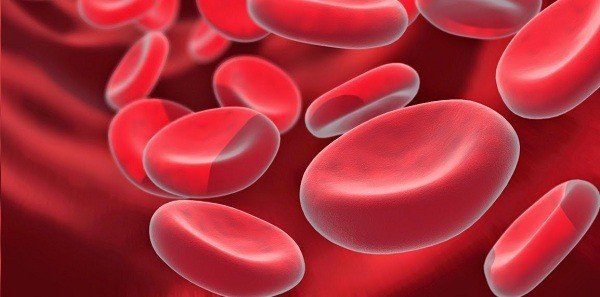Thalassemia

Thalassemia is a hereditary blood disorder characterized by lower than hemoglobin and a smaller amount of erythrocytes in the blood plasma.
There are several alpha, beta intermedia, Coulee anemia and Mediterranean anemia.
Hemoglobin is a protein in the composition of erythrocytes, through which red cells carry oxygen to the cells.
Low levels of hemoglobin and less number of erythrocytes as a result of the disease can cause anemia, due to which the affected person feels constant fatigue.
If the clinical condition is mild, the affected person will most likely not need treatment.
But in more severe cases, regular blood transfusions are required. In addition, every patient can take measures to deal with fatigue, such as starting to eat healthy and regularly doing physical exercises.
What are the symptoms?
• Feeling tired for a long time;
• Feeling weak;
• Pale appearance;
• Yellowing of the skin;
• Dark urine;
Some babies show the clinical manifestations of the disease as early as birth, while in others it occurs in the first 2 years of life.
Usually, people in whom only one hemoglobin gene is affected do not develop any signs or symptoms at all.
What are the causes?
The disease is caused by a mutation in the DNA of the cells that produce hemoglobin and is inherited.
The type of thalassemia a person has is determined by the number of gene mutations they inherited from their parents and which part of the molecule is affected by the mutations.
The more defective genes are inherited, the more severe the disease. The hemoglobin molecule is composed of alpha and beta parts, each of which can be affected.
Alpha thalassemia
Four genes are involved in making the alpha chain of hemoglobin.
You may acquire two of these from each of your parents. If you inherit:
• 1 mutated gene, you will not develop any symptoms of the disease, but you are a carrier and will pass it on to your children.
• 2 defective genes, the clinical manifestations of the disease will be quite mild. This condition is also called alpha thalassemia minor;
• 3 abnormal genes, signs and symptoms are moderate to severe. The condition is referred to as Hemoglobin H disease.
• 4 abnormal genes, the clinical condition is called alpha thalassemia major or hydrops fetalis, usually results in fetal death before birth or the newborn dies soon after birth;
Beta thalassemia
There are two genes involved in making the beta chain of hemoglobin, and you may get one from each of your parents.
If you inherit:
• 1 mutated gene, the symptoms will be mild;
• 2 defective genes, the manifestations of the disease are from moderate to very severe, the condition is known as Kuley’s anemia.
Babies who have inherited the two abnormal genes are usually healthy at birth, but develop signs and symptoms in the first 2 years of life.
And the mild form called beta intermedia of this variety of the disease can also occur with 2 mutated genes.
Treatment of thalassemia
• Avoid excess iron intake and take nutritional supplements containing the mineral only if prescribed by your doctor;
• Maintain a healthy diet at all times – eating a balanced diet with lots of nutritious and varied foods will help you feel better and increase your vitality.
Your treating doctor may recommend taking dietary supplements with folic acid, which supports the blood-forming process in the body and in particular the production of erythrocytes.
Also, to keep your bones healthy, you should make sure that your daily menu includes foods that contain enough calcium and vitamin D.
Consult with your doctor about whether you need to take nutritional supplements to maintain adequate levels of these two minerals.



